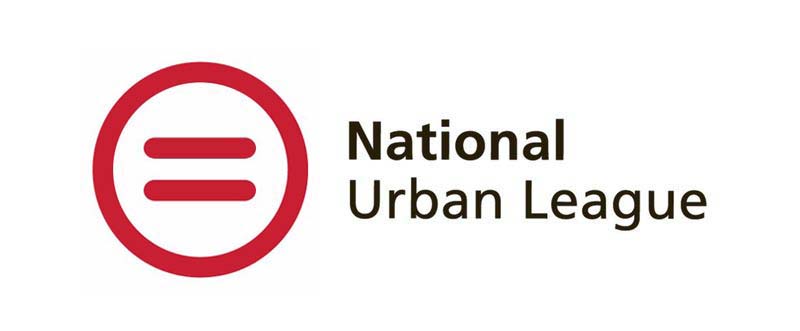When you think about your performance at work, you might think of it as good or bad, strong or weak. This is a simple way to look at it, but how well you do or don’t do your job indicates your work ethic.
When you have a good work ethic, people know they can count on you. And when you don’t have good work ethics, you may get the opposite reaction. While some people naturally have good or strong work ethics, not everyone does. Fortunately, if you fall into the “not” category, there are ways you can build and strengthen your work ethic.
What Is Work Ethic?
So, what is work ethic and what does work ethic mean? A very simple work ethic definition is the relationship you have with your job. Do you show up every day, bright-eyed and bushy-tailed, giving every task your all? Or do you make a minimal effort and basically phone it in?
How you feel about the job and how well you perform it is an expression of your work ethic.
When you consider your performance through a work ethic lens, you may think you have a good work ethic or a bad work ethic. However, you can also categorize your work ethic as strong or weak. When you’re driven to try your best at work because you’re passionate about it and believe in what you’re doing, you have a strong work ethic. But if you aren’t trying as hard as you once did or no longer connect with the work, you may have a weak work ethic.
It’s important to note that you can start a job with a strong work ethic but have it weaken over time. That could happen because the company’s culture changed, you’ve outgrown the job, or your interests have changed.

Professional Skills
Explore and uncover your professional must-haves in this free course from Discover Financial Services. You'll learn how to identify your professional values and connect with a company that supports them.
Avg. Time: 2-3 hours
Skills you’ll build: Discovery, planning, self-reflection, organization
What Is a Good Work Ethic?
As noted above, giving the job your all is an example of a good work ethic. But saying you always try your hardest isn’t as impactful as demonstrating it. Fortunately, your habits and behaviors can indicate you have a good work ethic. Here are some good work ethic examples.
Reliable
One way to demonstrate you have a good work ethic is to be reliable. People can count on you to come through, whether that’s helping with a last-second request or being at your desk at 8:00 a.m. on the dot. When you’re reliable, people know you’ll be there when they need you.
But being reliable also means you tell people when they can’t count on you. You know when you’ve got too much on your plate and can’t pitch in. Or if you know you’re running late, you communicate that information as soon as you can.
Productive
People with a good work ethic are also productive. While you may socialize with coworkers, you make sure to complete your tasks on time. What’s more, you aren’t merely checking off the boxes. The work you produce is top-notch because you care about it. You invest the time and effort into making sure your output is the best it can be.

Building Your Personal Brand
Learn how to build and maintain your personal brand in this free course from Ashurst UK. You'll learn how to develop your online presence and how it can help your job search.
Avg. Time: 2-3 hours
Skills you’ll build: Online presence, reputation, LinkedIn, personal branding
Responsible
Being responsible is another example of a good work ethic. In this instance, “responsible” doesn’t necessarily mean “in charge of.” While being responsible at work can include being a leader, in this case, being responsible means you take ownership of your work.
For example, if you can’t meet a deadline, you let everyone know and explain why you need an extension. And if you make a mistake (it happens!), you own it, apologize without blaming others, and create an action plan to correct it.
Team Player
Team players often have a good work ethic. They collaborate, cooperate, and communicate with others. And while you take credit for your share of the work, you understand that whether you’re an individual contributor or a leader, you’re part of something bigger and that everyone contributes to the success of your team and the company.
Determined
Finally, someone with a good work ethic is determined. You’re persistent and don’t give up at the first sign of trouble. Your dedication to the job means sticking with it to accomplish your assigned tasks and goals. And it means when you run into obstacles or are unsure, ask for and accept help to ensure you’re on the right track.

Interview Success
Uncover the tips and tricks for interview success in this free course from BCLP. You'll learn how to ace a video interview, the online skills assessment, and more.
Avg. Time: 4-5 hours
Skills you’ll build: Video interviewing, public speaking, organization, time management
What Is a Bad Work Ethic?
While being late and not doing your job are poor or weak work ethic examples, there are other behaviors that indicate you need to improve your work ethic.
Procrastination
When you procrastinate, you’re putting something off until the last minute. While some people think they perform best under pressure, procrastination can be a sign that you don’t care about the job or the quality of your work.
Inefficient
Procrastination often leads to inefficiency (the opposite of productivity). While you may complete your tasks, it takes you twice as long compared to your coworkers. Your reports may be late, or your part of the project isn’t done on time, slowing the overall productivity of the team.
Passive
Being passive means you’ve stopped caring about what happens at work. You’re not concerned about how well you perform your tasks or if they even get done. And you may not care about what happens to the rest of your team or the company.
Unreliable
Whether it’s leaving early and coming in late every day or not following through when you said you would, being unreliable is another sign of a poor work ethic. When people know they can’t count on you, they won’t, which could hurt your career progress.
Lack of Communication
One underrated example of a weak work ethic is a lack of communication. When you don’t let the team or your boss know what kind of progress you’re making on your task, or don’t ask for help when you need it, you’re telling everyone that you don’t care enough about the job. Even a lack of simple communication, like not letting your coworkers know that you’re running late that day, tells people you have a poor work ethic.
How to Improve Your Work Ethic
If you’re concerned you have a poor or weak work ethic or you want to improve your work ethic, there are plenty of things you can do to level up.
Start With Prioritizing
If procrastination is a familiar friend (or foe), work on eliminating it from your day-to-day. There are plenty of techniques that can help you focus, eliminate distractions, and get things done.
For example, you can use the Pomodoro technique to do heads-down, focused work for 25 to 30 minutes at a time, then take a break. Repeat until the job is done. Or you can try the “eat the frog” technique, where you tackle the hardest tasks first. You could use the “carrot and stick” approach, which is when you reward yourself for finishing a task. As an example, I once worked with a writer who would eat a Hershey’s Kiss every time they turned in an article.
Find the technique or motivation that works for you, then use it to banish procrastination from your work ethic.
Take Small Steps
Sometimes, achieving a large goal is easier when you start small. So, if you want to be seen as more reliable, start by making sure you’re on time every day. Maybe that means setting multiple alarms or leaving for work 30 minutes earlier than normal.
Once you’ve mastered punctuality, you can focus on other aspects of your work ethic, like being a team player. As you improve in each area, over time, you’ll discover that everything comes together and you’ve built a strong work ethic.
Ask for Advice
Another way to improve your work ethic is to ask those who you think have a strong or good work ethic how they achieved it. You may be surprised that the people who have the strongest work ethic now didn’t start that way!
Ask what they did to build their work ethic. What techniques did they use, and which ones didn’t work? How long did it take, and how did improving their work ethic improve other areas of their lives?
This knowledge transfer can help you discover techniques that could improve your work ethic and show you that it is possible to change.
Practice, and Be Kind to Yourself
Improving your work ethic won’t happen in one swoop. It’s the kind of thing you have to build and practice over time. And occasionally, you’ll slip up, but part of having a good work ethic is learning from your mistakes so they don’t happen again.
Equally important, though, is forgiving yourself when you do misstep. For example, if you’ve been working on prioritizing and you miss a task for the first time in six months, it’s fine! You’ve made it this far, and now you’ve got an excellent opportunity to figure out why you missed it and ensure it doesn’t happen again.
Practicing helps you improve your work ethic and remember you’re only human. Mistakes will happen!
Start Strong
Possessing a strong work ethic will help you in your job search and throughout your entire career. Even if you don’t feel you have a good work ethic right now, you can cultivate one by practicing the behaviors that indicate your solid work ethic until they are second nature.
Another great way to demonstrate or improve your work ethic to employers is by completing a Forage virtual job simulation. Show employers you’re deeply interested in a career path or company by engaging with their job sim and finishing the tasks. Bonus: When you finish a job sim, you’ll unlock a free resume snippet and interview talking points you can use during your job search!
Image credit: Monkey Business / depositphotos.com


